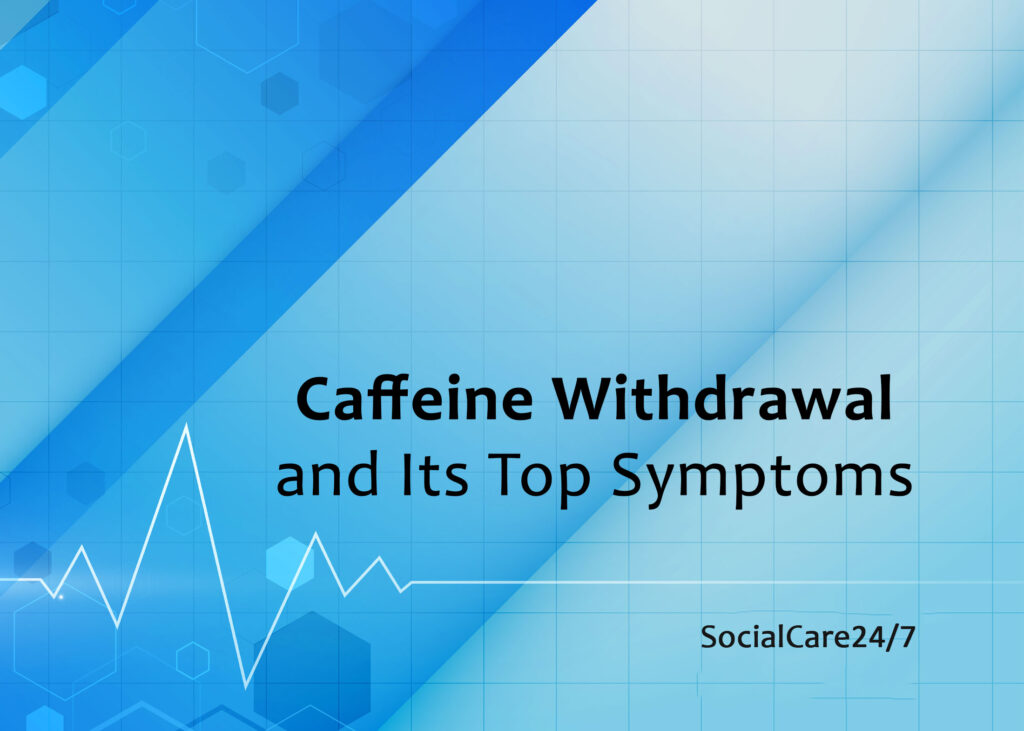Millions of people drink coffee daily to feel good and get ideas. Many value coffee because it wakes them up and makes them feel fabulous. What happens when we cut back on coffee? People who rely on coffee to keep alert and focused can experience caffeine withdrawal.
To drink less or no coffee, you must recognize the indicators of caffeine withdrawal. Here are the top 10 caffeine withdrawal symptoms. This article explains what to expect and how to handle these symptoms.
What is Caffeine Withdrawal?
When people stop drinking caffeine, they may experience physical and emotional withdrawal. Most people get high on caffeine, which is part of daily life and affects the brain and spinal cord. Regular caffeine consumption might cause mild and significant effects.
Symptoms Of Caffeine Withdrawal
Headaches
Caffeine withdrawal causes headaches in many people. Over half report they have different headaches after they quit drinking caffeine. These can be moderate or incapacitating. Coffee alters brain blood vessels, causing these headaches. Regular coffee use shrinks these blood arteries. But they grow when you suddenly quit drinking coffee. It hurts because it affects head pressure.
Fatigue and Lack of energy
Many people know caffeine wakes you up and boosts energy. Without it, many grow weary. Some people feel exhausted without coffee in the morning. This could make you less productive by making it hard to focus or remain awake. Drug withdrawal often causes sleepiness and slowness, especially in the first several days.
Lack of Focus and Difficulty Concentrating
Giving up coffee may disorient you because it helps you focus and think clearly. When weary or underslept, caffeine can improve concentration and cognition. Many people struggle to concentrate without coffee, making it hard to finish chores or pay attention in meetings.
Brain fog
After not having coffee, people often experience “mental fog”—forgetfulness, confusion, and disorganization. Unfocused and foggy minds make it hard to think straight. Coffee drinkers may find this “fog” irritating and gloomy. This indication will fade in a few days as your body adjusts to coffee lessness.
Anger and Mood swings
Grumpiness is a hallmark of caffeine withdrawal. Coffee drinkers may be more irritable and moodier. Brain chemistry that shifts without caffeine can produce this emotional roller coaster. Some gloomy people find it more challenging to connect with others while withdrawing.
Sadness and Depression
Caffeine boosts mood. Numerous studies demonstrate that regular use can even make you happy. Without coffee, you may feel sad. Caffeine consumption determines how awful these effects are. Some people may feel less pleased for a while without the boost.
Tired and Unproductive
Caffeine helps you stay awake and productive. However, many believe coffee makes them sleepy. When you’re fatigued, even simple chores may feel tougher. You may also notice your energy levels fluctuate during the day.
Stress
Caffeine can cause anxiety but cutting it down can help. Many folks become more anxious without coffee. A study indicated that coffee-free persons are more tense, restless, and worried. These advantages may be more substantial for former caffeine drinkers.
Flu symptoms
When you stop drinking coffee, you may feel sick. Painful muscles, fatigue, and a sore mouth may result. These indicators are rare yet dangerous for coffee drinkers. If you suddenly stop drinking coffee, these symptoms may appear. They usually disappear after discontinuation, which is nice.
Decreased Mental Alertness and Sharpness
Many studies demonstrate that coffee improves brain function and intelligence. Many people temporarily lose mental sharpness when they don’t have it. This can make it difficult to concentrate, decide, and digest information. After a few days of withdrawal symptoms, mental sharpness usually improves.
Managing Caffeine Withdrawal
These withdrawal symptoms can help you quit or cut back on coffee.
Slow, steady reduction works best
Withdrawal symptoms are best managed by carefully stopping coffee. Stopping caffeine abruptly might cause withdrawal symptoms, so do it gently over days or weeks. Switch to herbal teas or decaf coffee to reduce your daily coffee intake. Try this to adjust to less coffee without overdoing it.
Rest and drink lots of water
During detox, drink plenty of water to reduce headaches and maintain energy. Avoid sugary drinks and drink water to help your body eliminate caffeine. Additionally, sleep plenty. Sleeping more can help you cope with withdrawal symptoms by improving your mood.
Conclusion
People who drink coffee daily experience actual and awful caffeine withdrawal. Symptoms might range from minor headaches and fatigue to severe hostility and confusion. Quitting may be challenging due to these symptoms, but they’re temporary. The good news is that taking the appropriate steps can reduce these symptoms. Change will be easy with this. Slowly reducing caffeine is one of the most excellent methods for managing withdrawal.
Reducing your intake over a few days provides your body time to adjust. Keep yourself refreshed and prioritize sleep hygiene to ease withdrawal. Giving up coffee may be difficult initially, but it can improve your sleep, concentration, and anxiety.
Source links:
https://www.caffeineinformer.com/caffeine-withdrawal-symptoms-top-ten
https://www.nutritionadvance.com/caffeine-withdrawal-symptoms/



